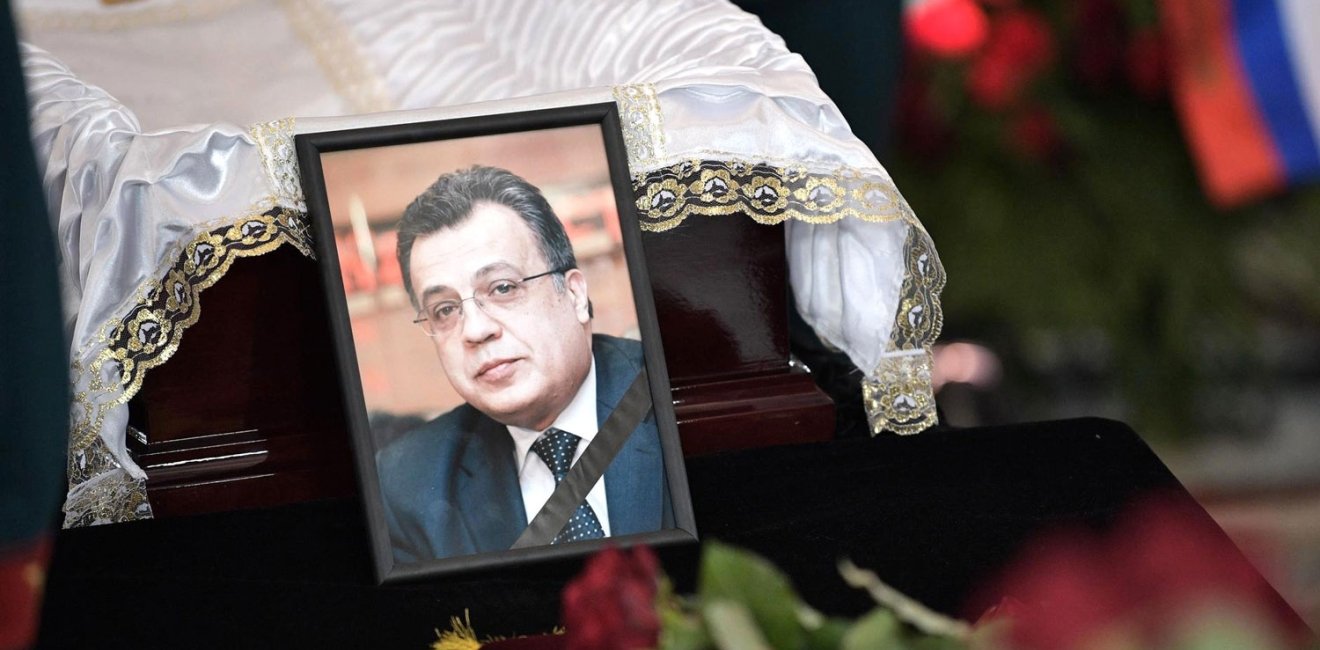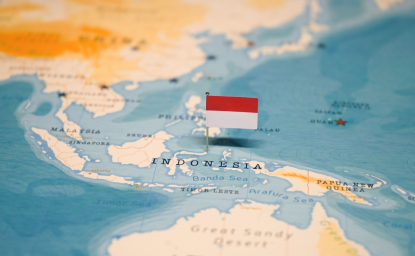A Murder in Ankara
The assassination of Russia’s Ambassador is likely to have far-reaching implications for the U.S.-Turkey relationship, writes Henri Barkey.
The assassination of Russia’s Ambassador is likely to have far-reaching implications for the U.S.-Turkey relationship, writes Henri Barkey.

The brazenness of the assassination of Ambassador to Turkey, Andrey Karlov, recorded for all to see, has shocked everyone. The ramifications of the murder will be felt far and wide. For starters, the assassin was a policeman who had previously been assigned to security details, including that of Turkey’s President. And then there’s the fact that the attack happened just after Turkey had come to the conclusion that Aleppo and its inhabitants could no longer be saved from the onslaught of the Syrian army, as supported by the Russian air force and the Lebanese Hezbollah militia. Already reeling from the collapse of its proxies in Aleppo, Ankara finds itself under even more pressure from the Russians, who will demand to know why an off-duty policeman was allowed into the room with the Ambassador. In fact, video footage shows the would-be assailant pacing nervously behind the victim before he decides to fire his pistol. The Russians will rightly insist on knowing how any security detail worth its weight did not sound the alarm about an unauthorized person lurking behind the Ambassador.
The Turks have already blamed the Fethullah Gülen organization, run by the mercurial cleric in self-exile in Pennsylvania, for the assassination. The Russians will not be easily deceived, as they have seen this film before. In November 2015, when the Turkish air force shot down a Russian warplane that had strayed into Turkish territory for 17 seconds, both Turkish President Recep Tayyip Erdogan and his Prime Minister, Ahmet Davutoglu, went on national television to claim credit for the shoot down. It was the honorable thing to do; Davutoglu even remarked that he had given the order and would do so again if such an incident were to be repeated. A few months on, following the imposition of Russian sanctions that hurt the already battered tourism industry, as well as agricultural exports, the Turks decided to make amends, blaming the shoot down on Gülen supporters.
The Russians must have found it amusing to hear that the shoot-down was the fault of rogue pilots in a NATO member country whose leadership had only a short time ago proudly claimed credit for the deed. By pointing to an organization that, they said (without much evidence), had thoroughly infiltrated their armed forces, the Turkish leadership displayed a weakness that the Russian leader, Vladimir Putin, has slowly managed to exploit for his own benefit. The unfortunate assassination of the envoy and the rehashing of fantastic claims once again serves to diminish the Turkish leadership and help the Russians.
Moreover, the remarkable linkage of the United States to the assassination in the pro-Erdogan press must also warm Putin’s heart. The Turkish leadership and media have become increasingly more strident in their anti-Americanism, primarily because of Washington’s alliance with the Syrian Kurds against the Islamic State. Syrian Kurds are affiliated with their Turkish counterparts, with whom Erdogan is presently engaged in a brutal conflict that has included acts of terrorism, the destruction of villages and towns, and repression. The paradox is that a putative peace process between the two fell apart because of the advances the Syrian Kurds had made under American tutelage.
The revived atmosphere of anti-Americanism in Turkey, while worrying, doesn’t mean that the country is about to abandon the NATO alliance. Erdogan needs NATO because without it his relationship with Putin would quickly become one of subservience. NATO allows him to get as close as he wants to Putin, secure in the knowledge that he has a rock-hard insurance policy. Here the Obama Administration deserves some of the blame for the deterioration of Turkish attitudes toward the United States. The Administration has chosen to ignore the insults, blame, and repression against Turkish politicians, academics, journalists, and many others. Some 79 percent of Turks, according to a poll released two weeks ago, blame the United States for the failed July 15 coup attempt—which, according to the Turkish leadership, was also perpetrated by Gulen.
The Turks have now agreed to a tripartite deal over Aleppo with the Russians and Iranians which cedes the city to Syrian strongman Bashar al-Assad. The opposition, to be sure, was defeated, and there was little Turkey could do except accept this reality. This, however, also frees Turkey’s hand to move against the Syrian Kurds. In all likelihood, the Russians have given them the green light to begin operations against the American-backed Kurds. One can almost see the glint in Putin’s eye as he watches two NATO allies fighting it out through their proxies in Eastern Syria.
The Turks will be calculating that the lame-duck Obama Administration will not be able to respond, and that the incoming Trump Administration will be sufficiently disorganized and so incapable of responding quickly or decisively to a Turkish push toward victory. But such a victory would only be a Pyrrhic one.
The opinions expressed here are solely those of the author.
This article was originally published in The National Interest.


The Wilson Center’s Middle East Program serves as a crucial resource for the policymaking community and beyond, providing analyses and research that helps inform US foreign policymaking, stimulates public debate, and expands knowledge about issues in the wider Middle East and North Africa (MENA) region. Read more



